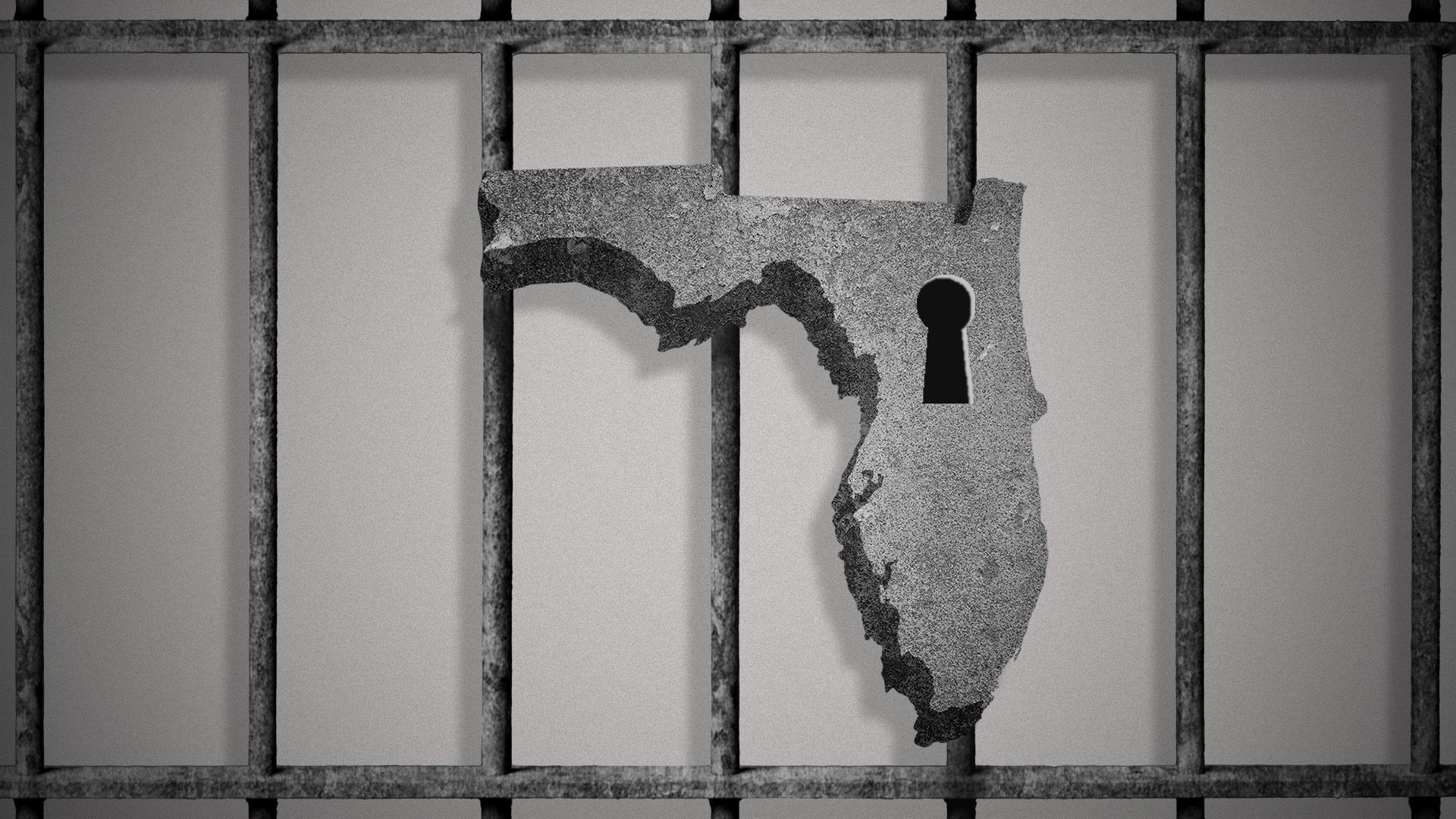Elderly population in Florida prisons on the rise, report finds
Add Axios as your preferred source to
see more of our stories on Google.

Illustration: Shoshana Gordon/Axios
As crime has dropped over the last two decades, Florida's incarceration rate has largely stayed the same, and the share of elderly inmates has increased.
Driving the news: That's according to two reports released this month by the Florida Policy Project, a nonpartisan research group started by former St. Petersburg lawmaker Jeff Brandes that aims to provide evidence-based solutions to Florida's biggest problems.
Why it matters: Many of the 25,000 people released from Florida prisons each year will end up incarcerated again, the reports say, raising questions about the prison system's ability to rehabilitate people and driving up costs for taxpayers. It costs $77 a day, or $28,000 a year, to hold just one person in a state prison.
- The cost of incarcerating seniors, who are least likely to reoffend, costs roughly twice as much.
Yes, but: Florida can look to programs in other states to better reintegrate incarcerated people into society and cut down on the number of elderly inmates taxing the system, Brandes told Axios.
What's he's saying: "We have to do better in creating pathways for inmates to reenter society," he said. "We can't just lock everybody up forever. That's not sustainable."
By the numbers: There were about 82,000 inmates in Florida prisons last year, according to the most recent Department of Corrections annual report.
- About 29% of them were 50 and older in 2022 — 10% higher than the share of elderly people a decade ago, per the reports, which were authored by University of Central Florida criminal justice professor Thomas Baker.
- That's in line with national incarceration trends, which experts attribute to harsh sentencing laws in the 1980s and 90s that are keeping people in prison longer.
- Roughly a quarter of people released will end up back in prison within three years. Among people 60 and older, that rate is about 16%.
What they recommend: Like most states, Florida law allows people who are permanently incapacitated or terminally ill to seek release from prison, but several states also consider age as a condition for release.
- Such a program here "could result in millions of dollars in savings … with the least risk to public safety," per one of the reports, which also suggests creating a digital literacy program for older people leaving prison, among other recommendations.
- Best practices to keep people from returning to prison include expanding workforce training opportunities and creating programs that help incarcerated people stay in contact with loved ones on the outside.
What's next: Brandes told Axios he plans to present the findings to members of the Legislature. His organization will also release a report in the coming weeks that focuses on veterans in Florida prisons.
Between the lines: Florida's prison system in recent years has been plagued by budget issues, and the Republican majority in the Legislature has angled itself as tough on crime, so whether there will be an appetite for programs that help incarcerated people remains to be seen.
